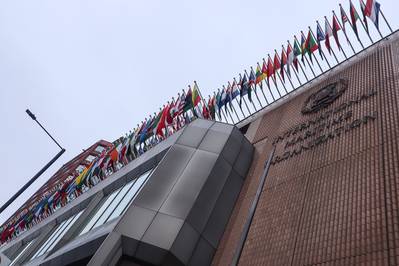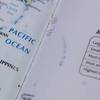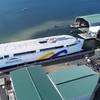IMO's Credibility Put to the Test
The IMO will reconvene in London on March 31 and April 1, for a crucial two-day Intersessional Working Group on Greenhouse Gas (ISWG-GHG 19) meeting. The meeting sets the stage for a decision on a GHG pricing mechanism by the Marine Environment Protection Committee 83 (MEPC 83) on April 7-11 on the future of shipping’s climate responsibility.
The 6PAC+ alliance, a group of Pacific, African and Caribbean States, backed by major allies, emphasizes that this meeting is a make-or-break moment for securing a universal GHG levy of $150 per tonne of CO2-equivalent. This is the minimum price needed to close the cost gap with alternative fuels and trigger large-scale commercial production by the 2030s, says the alliance.
ISWG-GHG 19 is a test of IMO’s credibility, said Ambassador Albon Ishoda, Marshall Islands Special Envoy for Maritime Decarbonization. “Without a universal GHG levy, IMO’s climate targets are meaningless. This is the fastest, most effective, and lowest-cost way to ensure a just and equitable transition, where no one is left behind. Delays cost lives. The time for action is now."
For the 6PAC+, this fight is not just about climate ambition, it is about survival. Rising sea levels, intensifying storms and eroding coastlines are already threatening the homes and livelihoods of millions across the Pacific and other vulnerable regions.
The universal GHG levy is the most widely supported and effective option on the table, says the Center. It ensures the shipping industry transitions away from its reliance on fossil fuels, pays its fair share for the damage caused by its pollution and will generate vital revenues for climate-vulnerable nations to transition, supporting developments in port infrastructure, capacity building and seafarer training.
Momentum for the universal levy is growing: over 50 nations in a rising coalition from the Pacific, Caribbean, Africa, Latin America and Europe backed by industry leaders like the International Chamber of Shipping (ICS) back a GHG levy as the IMO’s economic measure.
Yet, political divisions remain, especially over the starting price and revenue distribution. Important differences still remain over the entry price of the levy and the ultimate use of the revenues it generates, with ICS offering a starting point of around $20/tonne CO2-e, the EU suggesting $100/tonne CO2-e and the 6PAC+ arguing that $150/tonne CO2-e is the minimum price to keep the Paris Agreement target of 1.5 C alive.
Meantime a small but powerful lobby of BRICS and petro-states oppose any form of levy, arguing instead for some form of credit trading scheme, with revenues largely recycled within the industry. The 6PAC+ says such schemes are always regressive with revenues moving from poor southern buyers to already well-established traders in developed and emerging economies.
Dangerous distractions, such as complex credit trading schemes, risk derailing ambition, but the 6PAC+ has made clear: half-measures cannot replace real action.
The 6PAC+ alliance calls on all IMO member states to stand with the most vulnerable and deliver a decision that is ambitious, fair, and just for all. In the words of Marshall Islands President Hilda Heine: "There is no more room for delay. The world is watching — and history will remember what we decide here.”











